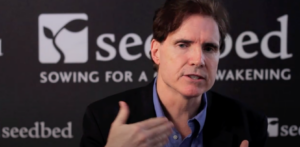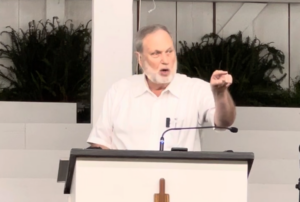It was a wonderfully creative process, but like most creative processes there was a crisis moment. In the middle of the day we hit a wall. The architects were struggling to make the design work from a basic construction perspective, and we were struggling to figure out what their problem was.
Then we saw it. They were trying to get rid of our loading docks! And yes, to eraise the loading docks would have created a huge financial and feasibility impasse. We have two of them, two different heights, on two sides of the building. It would have made more sense to level the building and start over than to get rid of them.
The problem was that while the architects had heard our individual stories, they hadn’t yet gotten the big story. They’d missed what makes us Mosaic. We’re missional. We aren’t trying to look like a church. We’re just trying to make a difference in the world. We actually want to be a church with a loading dock, because we hope one day we’ll be loading food in and out of our building five or six days a week. In fact, we hope to be loading all kinds of things in and out that will make a difference to people in crisis, that will give us permission to speak into their lives spiritually.
When the architects finally got the big story of Mosaic it helped make sense of all the little stories. That’s how we ended up with this master plan we have today.
Loading docks and all.
N.T. Wright says, “Only by understanding and celebrating the larger story can we hope to understand everything that’s going on in our own smaller stories, and so observe God at work in and through our own lives.” (Paul for Everyone, Ephesians)
It is really easy to let the details get in the way of the main point. Whether in our personal stories or in our corporate story, we can program our way into all kinds of activities that make us look very busy and engaged, but still miss the big story.
In our quest to be relevant and busy and engaged, the American Church may have done just that. We’ve allowed ourselves to become one more activity in a long list of family to-do’s, when God’s plan is not for the church to be one more activity but the basic building block in the formation of a new society. As Eugene Peterson puts it in Ephesians 1:23 (The Message), the Church is not peripheral to the world; the world is peripheral to the church.
Does the place you call your church intend to participate in God’s plan to build a new society, or are they just generating more activities to fill your calendar?







